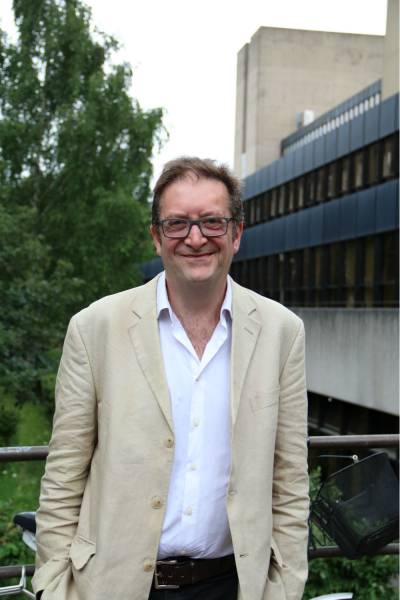What is your role and what does it involve?
I am Chair of Psychology and Human Development, which for me means that I have a responsibility to watch over and advise on the activity of the department. A particular focus for this has been the growth of our work in educational neuroscience - I led us into the partnership within the Centre for Educational Neuroscience with Birkbeck and UCL Institute of Cognitive Neuroscience in 2008, and am still Deputy Director for the Centre, as well as Programme Leader for the Educational Neuroscience MSc, which we run jointly with Birkbeck. I am also IOE lead for a major Education Endowment Foundation/Wellcome Trust project on the development of executive function - controlled thinking, in other words - in the context of science and mathematics learning.
I am also currently Director of both the Bloomsbury and UCL ESRC Doctoral Training Centres, and lead on the development of the UCL, Bloomsbury and East London ESRC Doctoral Training Partnership. These roles give me a responsibility for the development and provision of doctoral training in the social sciences across UCL, Birkbeck, the School of Oriental and African Studies, the London School of Hygiene and Tropical Medicine and the University of East London. At present, we are engaged in using this to build a major hub for social science capacity building in London, involving academics in more than 50 academic departments and over 100 research centres and institutes, and drawing in non-academic partners from across London.
How long have you been at UCL and what did you do before that?
Since the start of 2007. Prior to that, I was based in the Department of Psychology at the University of Strathclyde for 19 years, where I rose from Postdoctoral Research Fellow to Reader, and was both Director of the Centre for Research into Interactive Learning and Director of Postgraduate Studies from 2001 to 2006. During my time at Strathclyde, I was involved in the development of major programmes of research on the use of group work and dialogic teaching in science learning, the acquisition of road crossing skills and the development of communicative competences. Much of my research is still on science learning.
What's the most important thing you've learned from your students about the subject you teach?
Never take anything for granted - because an idea or a concept seems clear to you, it doesn't mean it is to others, and when you start to examine why, you often find it's because you haven't thought things through properly yourself.
What working achievement or initiative are you most proud of?
No single thing really. Helping provide the foundations for group work in science learning across UK primary schools, developing resources for training primary school children in road crossing skills that were deployed across UK schools by the Department for Transport, helping establish the Centre for Educational Neuroscience and the Bloomsbury ESRC Doctoral Training Centre - all these rank fairly equally for me.
Tell us about a project you are working on now which is top of your to-do list.
The UCL, Bloomsbury and East London application for ESRC Doctoral Training Partnership funding has been dominating my thinking since March 2015, and I am committed to spending more than half my time on the development of the DTP and the major hub it represents. This is in many respects the most exciting initiative I have ever been involved in - the prospect of being able to make a major contribution to UK social science that will have impact for years to come is about as fulfilling as things get, I think, even if it is going to be very hard work.
Wearing my research hat, though, I harbour a quieter ambition to develop a cognitive skills approach to science learning, grounded in what we know of neural development, to parallel the unprecedented strides that have been made using the same approach in literacy learning. I have just published an agenda-setting paper on this with two of my students in the British Journal of Educational Psychology, and hope to use this as a springboard to get funding to develop this work fully. This too promises to be transformational in terms of its potential impact on science teaching in primary schools.
What other piece of research outside of your own subject area interests you?
I have a longstanding fascination with evolutionary psychology work on the development of culture in the sense of tool use and other practices which are carried over from one generation to the next, and improved upon. Human beings started being able to do this in antiquity, which makes it hard to trace why it happened, but work with other species that exhibit the beginnings of similar abilities, and with human infants and young children provide us with something more of a handle. Understanding this ability better would go to the core of our grasp of how hard- and soft-wired neural processes interrelate - how the biological is transformed into the cultural, and with what consequences, to paraphrase the great Russian developmentalist, Lev Vygotsky.
 Close
Close


